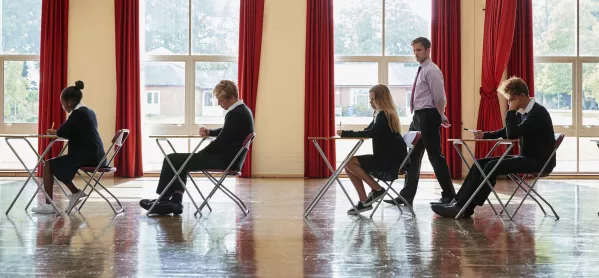Changing last year’s controversial grade boundaries for the reformed A-level maths exams would be “unfair”, Ofqual has decided.
The regulator announced that it would review the grading in August, shortly after leaked documents revealed the boundaries for this year’s exams were significantly lower than in 2018.
It was understood that, as a result, hundreds of students who sat the reformed qualification last year could have their grades retrospectively changed.
Related: Ofqual investigating A-level maths grades
Grade boundaries: Just over half marks needed for maths A grade
Exclusive: 78 pupils’ results ‘withheld’ after A-level maths leak
However, the regulator has ruled that adjusting the boundaries for the reformed exams would put last year’s cohort at an “unfair advantage” over those who took the legacy specifications.
An investigation into the exam boards’ decisions found that the lower boundaries set for this year’s exams compensated for the fact pupils did not have the opportunity to re-sit part of the qualification.
This was because they were the first year group to sit the new linear exams at the end of Year 13, with no opportunity to re-sit their AS papers alongside their final exams.
The investigation also found that this year’s tests were “more demanding” - which should mean the grade boundaries for the series are lower.
Fewer than 2,000 pupils sat the new exams last year, most of whom were very able 17-year-olds intending to take further maths in 2019. The majority sat the new A level at the end of Year 12 after just one year of teaching.
In contrast, this year there was a much larger cohort of 85,000 pupils.
Ofqual concluded: “We have considered with the exam boards whether there is a case to re-visit the grade boundaries set in reformed A-level maths specifications in 2018. On balance, we believe there is not.
“Making any changes (to revise grade boundaries downwards) would introduce an unfair advantage for Year 12 students taking the reformed A level in maths compared to those 17-year-olds in 2018 who took the legacy specifications (around 1,200 students).
“We believe that it is right to prioritise comparability of standards for a cohort within a year. We have therefore not asked any of the exam boards to revisit their 2018 awards.”




